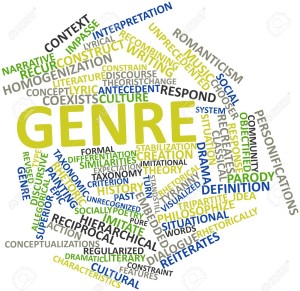Hyland’s essay explores several critical issues surrounding process pedagogy and outlines ways in which genre-based pedagogies could support process approaches. Process pedagogy, in its broadest sense, has been the dominant approach to composition for decades. Indeed, questioning process pedagogy may ruffle some feathers, as it has become so ingrained in first-year composition. Additionally, several critiques of process pedagogy point to deep-seated economic and sociopolitical problems. My goal is not to dismiss process pedagogy by any means. Process pedagogy – the sequence of invention heuristics, pre-writing, peer reviews, revision, teacher feedback, the concern for voice, purpose, and audience – is about as integral to my teaching practices as breathing. In fact, my class is holding two peer workshops this week! These constructive criticisms have more to do with process pedagogy’s epistemology and the role of language in the classroom. Integrating process and genre-based approaches provides a powerful framework for explicitly teaching language and genres in a variety of social contexts, while meeting the needs of a diverse group of learners.
Process approaches are what Bizzell (1992) calls ‘inner-directed’ … But while this view directs us to acknowledge the cognitive dimensions of writing and to see the learner as an active processor of information, it neglects the actual processes of language use. Put simply, there is little systematic understanding of the ways language is used in particular domains. (Hyland 19)
My biggest point of contention with process pedagogy is epistemological. Process pedagogy situates language use within cognition, relegating language study to the ephemeral realm of the mind. Flower and Hayes defined the process of writing “as a set of distinctive thinking processes,” relying on think-aloud protocols of expert writers, yet do not go into much more detail (366). Placing language within cognition makes it virtually impossible to systematically study language, unless you are a cognitive scientist, which most English teachers and students are not. Genre pedagogy more appropriately places language within society and uses texts as the unit of study, analyzing how writers effectively achieve their purposes through language.
While well-intentioned, this is a procedure which principally advantages middle class L1 students who, immersed in the values of the cultural mainstream, share the teacher’s familiarity with key genres. (Hyland 19)
This is probably the most biting critique of process pedagogy. As an “invisible” pedagogy, students unfamiliar with middle class values of individualism and inner-directed reflection, will have difficulty meeting the implicit expectations and cultural values of their teacher. Delpit argues, “Teachers do students no service to suggest, even implicitly, that ‘product’ is not important. In this country students will be judged on their product regardless of the process they utilized to achieve it” (qtd. in Hyland 19). By focusing on process over product, yet still grading students’ papers by a demanding, often unstated criteria, students least familiar with academic discourse and Western cultural norms will not be evaluated as successful.
What is genre pedagogy?
Genre pedagogy is a “visible” pedagogy, which seeks to explain how writers achieve their purpose through language in various social contexts. Genre aims to familiarize all students with privileged forms of discourse. Instead of situating language study within cognition, genre pedagogy places language squarely within discourse communities. While teachers of process pedagogy often take a “hands-off” approach, teachers of genre pedagogy take an active role in students’ learning, often employing the teaching-learning cycle – deconstruction, joint negotiation, independent construction. Genre pedagogy breaks genres into stages, which are further divided into phases, so students are given clear instruction on how to produce genres at every stage of the writing process.
Doesn’t genre pedagogy encourage formulaic, cookie-cutter writing devoid of critical thought?
Genres such as greetings, business transactions, and research articles become highly codified over time. Genres are developed to achieve certain social purposes. Far from being a negative, teaching students genres apprentices them into the practices of privileged discourse communities. Genres allow for a tremendous amount of heterogeneity, play and creativity, within the homogeneity, not to say students won’t blindly follow generic formulas; it is always a possibility. To the question of whether genre pedagogy encourages critical thought, the questioning of conventions and ideology, Hyland makes the excellent point that students cannot produce critical analyses or experiment with genres until they can successfully write in the discourse community. It is that old adage: you must learn the rules before you can break them.
Works Cited
Flower, Linda, and John R. Hayes. “A Cognitive Process Theory of Writing.” College Composition and Communication: 365-387. Print.

